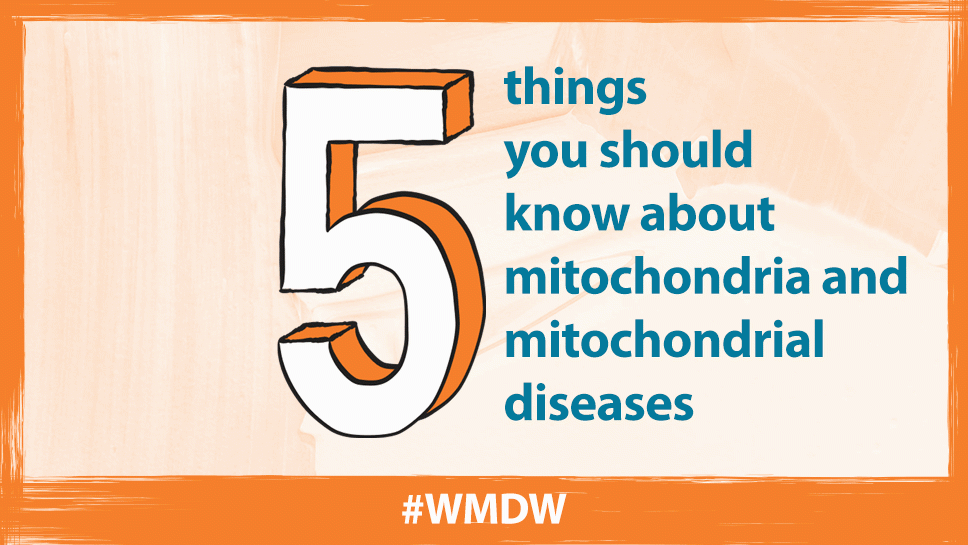Here’s everything you need to know about mitochondria and mitochondrial diseases.
5 things you should know about mitochondria and mitochondrial diseases

1. Mitochondria are an essential part of the cell and produce over 90% of energy in our bodies’ cells.
2. Mitochondria make up a high percentage of heart, muscle and liver cells, the organs that require a lot of energy for their function.
The energy produced by mitochondria is used by our body to breathe, walk, talk, eat, see, hear, and perform other essential functions.
3. Mitochondria have their own DNA
Mitochondria contain a small amount of their own DNA, which spans 37 genes that are important for mitochondrial function. Changes in mitochondrial DNA are often associated with mitochondrial disease. Mitochondrial DNA is exclusively inherited from the mother.
4. 1 in 5000 people live with mitochondrial disease
Mitochondrial diseases used to be considered rare, but now 1 in every 5000 people are found to live with the condition.
5. There are several mitochondrial diseases
Mitochondrial diseases include Kearns-Sayre syndrome (KSS), chronic progressive external ophthalmoplegia (CPEO), Leber hereditary optic neuropathy (LHON), mitochondrial encephalopathy, lactic acidosis and stroke-like episodes (MELAS), myoclonus epilepsy associated with ragged-red fibres (MERRF), Leigh disease, mitochondrial DNA depletion syndrome, and Alpers syndrome. Mitochondrial diseases mainly affect the organs and parts of the body that require the most energy for their function, including heart, muscle, brain, lungs and liver.
As part of the 2022 Grant Round, we have awarded funding to Professor Rita Horvath at University of Cambridge to study a potential link between reversible and non-reversible mitochondrial myopathies. Reversible mitochondrial myopathies affect children who recover after starting to consume particular nutrients when they reach 6 months of age. Professor Horvath and the funded PhD student will look if taking supplements for the same nutrients could help manage non-reversible mitochondrial myopathies.
MDUK is a member of International Mito Patients family, a network that brings together patients and organisations from across the world, with the aim of increasing quality of life of people living with mitochondrial diseases by sharing knowledge and information, as well as promoting development of treatments for these conditions.


